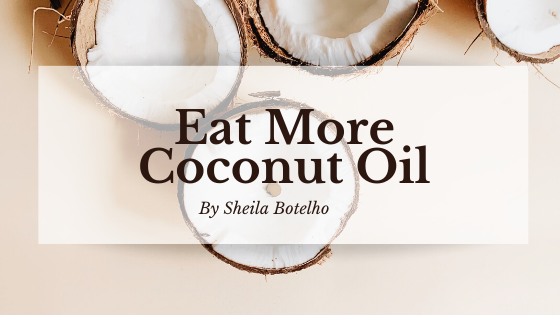Good Fats
If you grew up in the 80’s and early 90’s, you learned to hate all fats. Low-fat or no-fat dairy foods of all kinds made their debut on grocery store shelves. So now, why is everyone saying you should eat more coconut oil? It’s fat, after all.
How does coconut oil affect heart health? Cholesterol is often the first thing people consider when thinking about the heart. Coconut oil is considered a saturated fat. Aren’t all saturated fats bad?
Heart Health
Nutritional research shows that while coconut oil contains a large amounts of saturated fat, it’s actually beneficial for heart health. It contains about 50% lauric acid which has been shown to prevent high blood pressure and high cholesterol levels. It does not increase LDL levels, lowers the occurrence of artery injury, and prevents atherosclerosis.
Research also suggest that post-menopausal women may benefit directly as well. Coconut oil can also help restore normal thyroid function, which in turn help stabilize cholesterol levels.
Blood Sugar & Weight Loss
Speaking of the thyroid, coconut oil can help regulate hormone levels that control blood sugar and insulin levels. The result is improved energy and endurance, and increased metabolism. Nutrient intake is also improved as the oil aids in digestion, allowing for better fat soluble vitamin absorption.
When this healthy fat is broken down in the liver, energy is burned more efficiently. One study showed that women who consume about 2 tablespoons of coconut oil daily for 12 weeks didn’t gain weight and lowered abdominal fat levels.
Immune Health
Studies also show that regular intake of coconut oil helps the body increase immunity to viruses and bacterial infections. It also helps with yeast, fungus and candida infections. The oil has protective properties that fight oxidative stress to other healthy fats and body tissues, like skin. Ingesting coconut oil and moisturizing with it can have a beneficial effect on skin aging and hair maintenance.
Coconut Oil In The Kitchen
Use coconut oil for cooking and baking. It’s a wonderful substitute for butter or shortening when baking and can be heated safely when sautéing on the stove top. Add a teaspoon to your smoothie and sometimes and add it to your morning oats for a creamier texture.
Quick Tips:
- Ensure you buy extra-virgin, cold pressed coconut oil.
- Have separate containers of coconut oil for cooking and moisturizing to prevent cross-contamination.
- Eat a maximum of 1-2 tablespoons each day.
- Rub into skin generously after the shower for silky skin that lasts.
Tell Me:
Are you getting enough good fat in your diet? Do you find it a struggle to let go of old thinking that all fat should be avoided? Tell me in the comments. I’d love to hear the difference you notice when you add coconut oil to your next entree or smoothie.
Blessings,
Sheila
Want to up your self-care practice and support your best hormonal health at every stage? Subscribe here to cut through healthy living overwhelm and start thriving.

